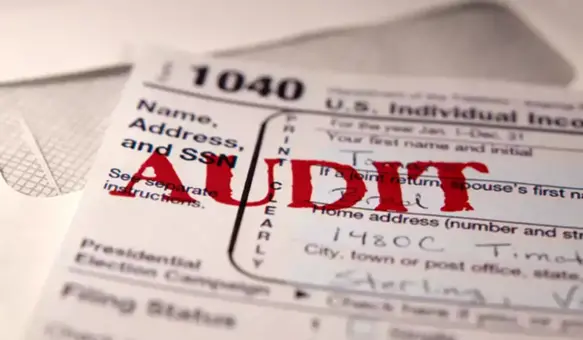IRS provides tax relief to Texas flood victims: what you need to know

In the wake of the devastating flooding in Texas, the IRS has stepped in to provide tax relief to those impacted by the catastrophe.
The severe flooding, which began around the July 4th holiday and affected several counties, has caused widespread destruction.
In response, the IRS has extended deadlines for tax filings and payments for both individuals and businesses in the affected areas.
The relief follows the Federal Emergency Management Agency (FEMA) declaring certain counties as disaster areas, which triggered federal tax relief provisions. The extended deadlines are aimed at helping those affected by the floods and the ongoing recovery process.
Affected areas and new deadlines
The IRS has extended filing and payment deadlines for residents and businesses in the following counties:
- Burnet
- Kendall
- Kerr
- Kimble
- Menard
- San Saba
- Tom Green
- Travis
- Williamson
These counties were most heavily impacted by the floodwaters, and as a result, the new deadlines allow taxpayers more time to file and pay their taxes.
The extended deadline is February 2, 2026, which applies to various tax matters, including income tax returns, quarterly estimated tax payments, and payroll taxes.
Key tax matters affected
The IRS tax relief applies to several tax-related deadlines, including:
1. Individuals and businesses with extensions
Taxpayers who had previously filed for an extension to file their 2024 tax return (which was due October 15, 2025) now have until February 2, 2026, to file.
2. Quarterly estimated tax payments
The deadline for quarterly estimated income tax payments due on September 15, 2025, and January 15, 2026, is also extended to February 2, 2026.
3. Payroll and excise tax returns
Employers who are required to file quarterly payroll and excise tax returns, normally due on July 31, October 31, 2025, and January 31, 2026, now have until February 2, 2026, to file.
4. Partnerships, S corporations, and corporations
Calendar-year partnerships and S corporations, whose extensions would typically expire on September 15, 2025, now have until February 2, 2026, to file.
Similarly, calendar-year corporations and tax-exempt organizations with extensions will also benefit from this extended deadline.
Payments due before the extension
It’s important to note that while the filing deadlines are extended, payments for taxes that were originally due before the extension will still need to be made by the original deadlines.
For example, if an individual had a tax payment due in April 2025 but filed for an extension, the payment must still be made by April 15, 2025.
Disaster-related deductions and retirement plan withdrawals
In addition to the extended filing deadlines, the IRS has provided guidance on how taxpayers can take advantage of disaster-related tax breaks.
Specifically, taxpayers may be eligible to claim uninsured disaster losses as itemized deductions.
Additionally, special tax treatment is available for any disaster-related distributions taken from workplace retirement plans or IRAs.
Challenges and questions surrounding FEMA’s response
While the IRS tax relief is helpful, questions have been raised about the effectiveness of the overall disaster response. Many Texans impacted by the floods are questioning whether earlier alerts and a quicker federal response could have mitigated some of the damage.
Since the beginning of President Trump’s second term, there has been ongoing scrutiny over FEMA’s preparedness and response to natural disasters, with cuts made to the National Weather Service's budget and the broader scope of emergency relief programs.
Impact on US expatriates and non-resident aliens
For US expatriates, these tax relief measures also apply if they have business or personal interests in the affected areas. Expatriates who engage in any financial activities in the US related to the disaster may find this new tax relief valuable.
For example, expats may be eligible to claim any uninsured disaster losses against their income for the year.
However, non-resident aliens face additional complexity in claiming these benefits. Non-residents who participate in gambling or other taxable activities during their visits to the US will need to navigate these tax changes, especially if they are impacted by natural disasters.
What taxpayers need to do now
For those affected by the Texas floods, it is critical to keep detailed records of all flood-related damages and losses. Taxpayers should also ensure they keep track of any insurance settlements or reimbursements they receive, as this will impact any claims for deductions.
The IRS encourages taxpayers to keep receipts and records from gambling establishments or businesses impacted by the floods, as well as to file any updated disaster-related tax returns as soon as possible.
Looking ahead: planning for future disasters
The Texas flooding serves as a reminder of the unpredictability of natural disasters and the importance of planning ahead. While this relief offers immediate assistance, taxpayers should prepare for future disasters, especially given the likelihood of more severe weather events.
Being proactive about record-keeping, staying informed about tax relief provisions, and working with a tax professional who understands disaster-related tax strategies will be crucial for all affected parties.




